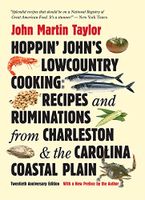Advertisement
Rusks
Published 1992
The first of these recipes is Anne Sinkler Fishburne’s “rusk as defies modern shortcuts” (c. 1919). These sweet rolls were split, buttered, baked a second time, then served at tea on the plantations along the Cooper River north of Charleston, where so many Scots had settled. The second recipe, also from Mrs.
Ophir Plantation was the country seat of the Porcher family, French Huguenots who first spent time in London before moving to the Lowcountry in the 1680s. Robert Wilson, a surgeon and Episcopal priest, wrote of the area in Lippincott’s Magazine in January 1876: “To understand the home and life of the wealthy Carolina planter we must remember that he was the most contented man in the world. . . . [He had] no expensive tastes except for rare old Madeira and racing stock.” At Ophir there were stables for those horses, domesticated ducks and geese, and houses for the chickens, turkeys, dogs, and hogs. In the storeroom, a basement held flour, sugar, and salt by the barrel; the meat room was filled with hams, sausage, and liver pudding.

